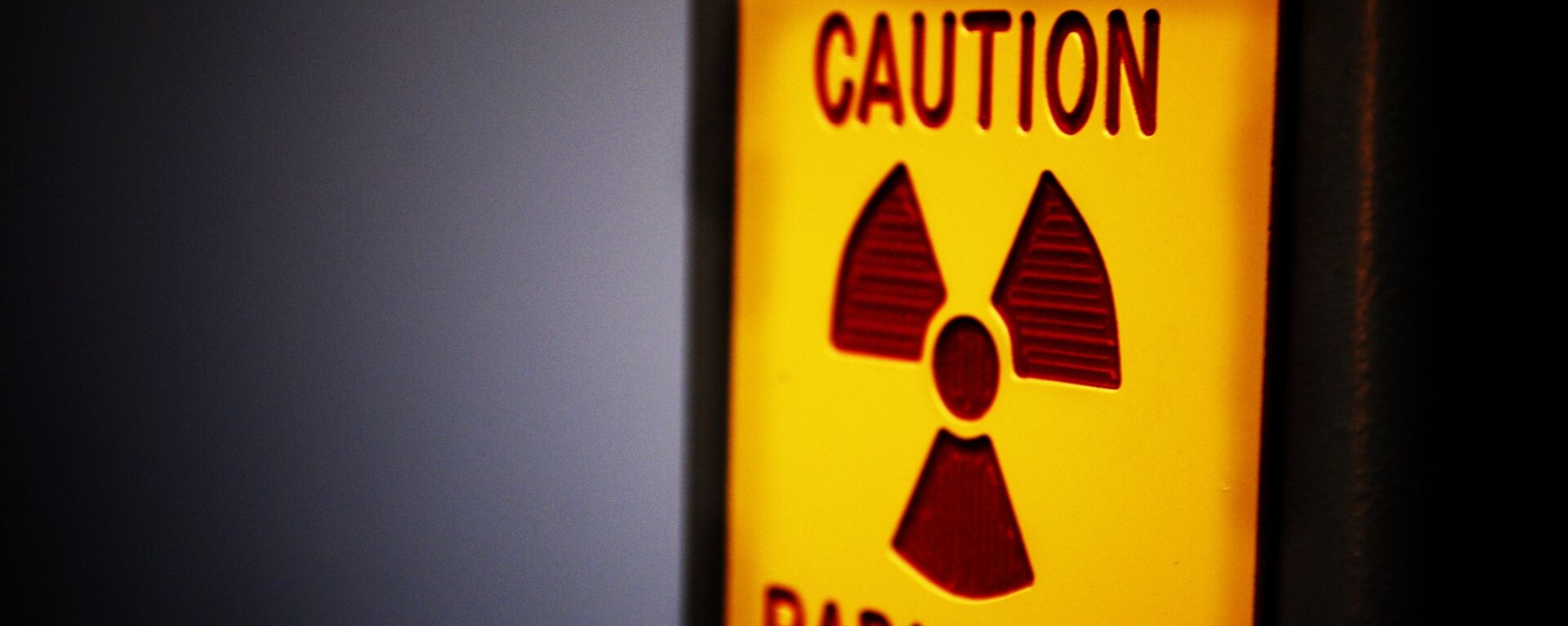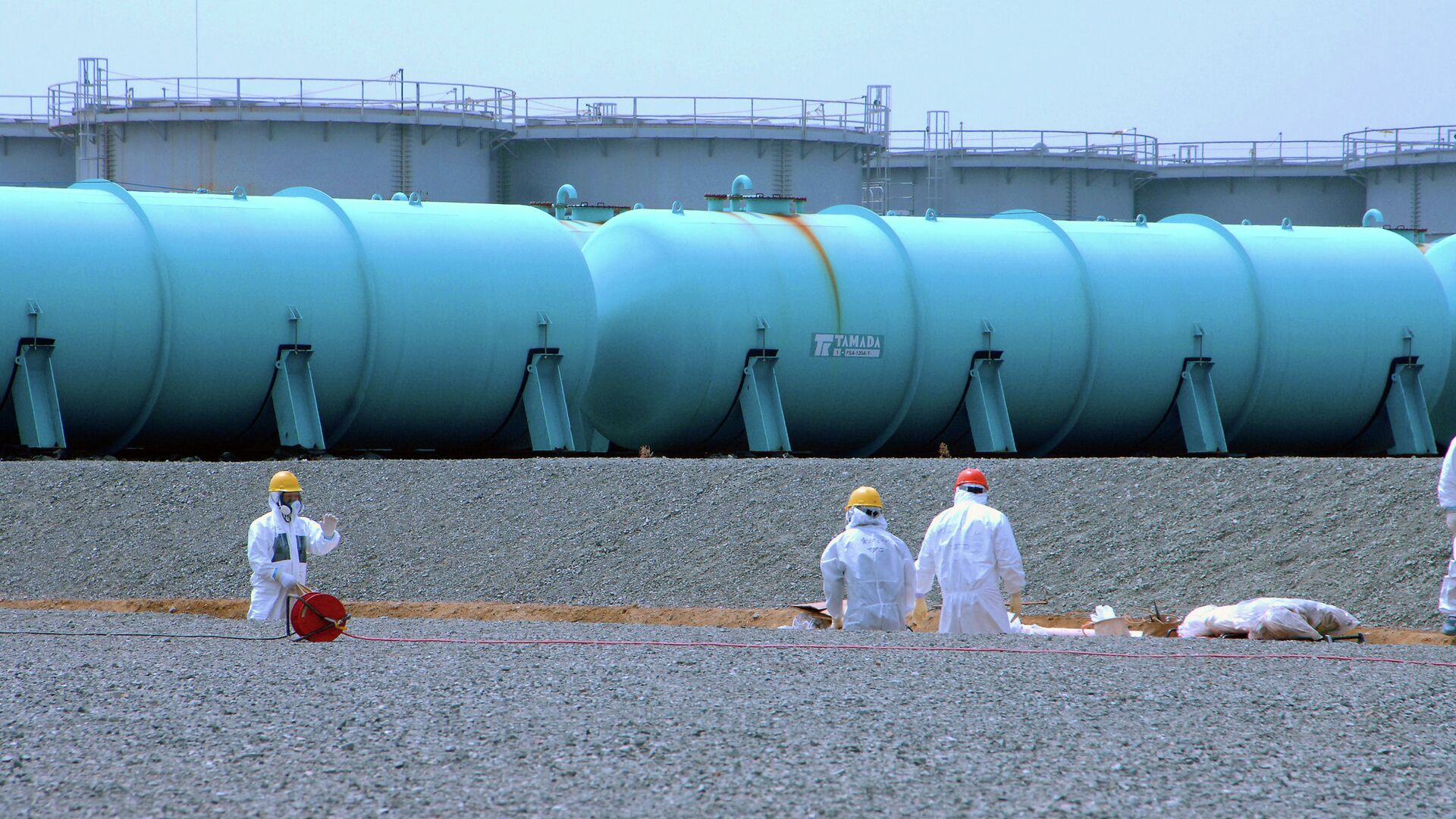https://sputnikglobe.com/20230825/south-korea-to-toughen-checks-of-farmed-seafood-amid-fukushimas-water-discharge-1112876835.html
South Korea to Toughen Checks of Farmed Seafood Amid Fukushima's Water Discharge
South Korea to Toughen Checks of Farmed Seafood Amid Fukushima's Water Discharge
Sputnik International
Seoul will toughen radiation tests on farmed seafood to ease domestic tension over the ongoing water release from Japan's disabled Fukushima nuclear power plant, South Korean Vice Oceans Minister Park Sung-hoon told a briefing on Friday.
2023-08-25T07:47+0000
2023-08-25T07:47+0000
2023-08-25T07:47+0000
asia
fukushima
tokyo electric power company (tepco)
international atomic energy agency (iaea)
pacific ocean
seoul
south korea
https://cdn1.img.sputnikglobe.com/img/102090/27/1020902773_0:104:2048:1256_1920x0_80_0_0_4b833a2baccdd474b7bff28bf2878b39.jpg
Seoul will toughen radiation tests on farmed seafood to ease domestic tension over the ongoing water release from Japan's disabled Fukushima nuclear power plant, South Korean Vice Oceans Minister Park Sung-hoon told a briefing on Friday.He also noted that radiation checks had been in place since 2011, but now the government will increase their scale next week to ensure food safety. Last month, Seoul started pilot testing farmed seafood using private firms, the ministry said, and no radiation was detected in 143 already collected samples. Japan's decision to discharge treated nuclear-tainted water into the Pacific Ocean has faced criticism from some of its neighbors that fear radioactive contamination. On Thursday, several students tried to break into the Japanese Embassy in Seoul in protest at the water release. Meanwhile, the International Atomic Energy Agency said that the treated wastewater would have a negligible radiological impact on people and the environment. In March 2011, Fukushima NPP had three of its reactors melt down after the nation shook from a magnitude 9 earthquake followed by a massive tsunami. Fukushima is considered the worst nuclear disaster since the Chernobyl accident in 1986 and has resulted in widespread contamination of local soil and water, mass evacuations, and long-term health issues for an estimated tens of thousands.
https://sputnikglobe.com/20230824/fukushima-very-dangerouscauses-genetic-damage-at-tiny-conventional-doses--1112839265.html
fukushima
pacific ocean
seoul
south korea
Sputnik International
feedback@sputniknews.com
+74956456601
MIA „Rossiya Segodnya“
2023
Sputnik International
feedback@sputniknews.com
+74956456601
MIA „Rossiya Segodnya“
News
en_EN
Sputnik International
feedback@sputniknews.com
+74956456601
MIA „Rossiya Segodnya“
Sputnik International
feedback@sputniknews.com
+74956456601
MIA „Rossiya Segodnya“
south korea, south korean vice oceans minister park sung-hoon, radiation tests, fukushima nuclear power plant
south korea, south korean vice oceans minister park sung-hoon, radiation tests, fukushima nuclear power plant
South Korea to Toughen Checks of Farmed Seafood Amid Fukushima's Water Discharge
MOSCOW (Sputnik) - On Thursday, Fukushima’s operator, TEPCO, started dumping the wastewater from the plant into the Pacific Ocean, having diluted it with sea water in advance.
Seoul will toughen radiation tests on farmed seafood to ease domestic tension over the ongoing water release from Japan's disabled Fukushima nuclear power plant, South Korean Vice Oceans Minister Park Sung-hoon told a briefing on Friday.
"The government will significantly expand tests on farmed seafood before they are shipped by mobilizing private institutions," Park was quoted as saying by the South Korean news agency.
He also noted that radiation checks had been in place since 2011, but now the government will increase their scale next week to ensure food safety.
Last month, Seoul started pilot testing farmed seafood using private firms, the ministry said, and no radiation was detected in 143 already collected samples.
Japan's decision to discharge treated nuclear-tainted water into the Pacific Ocean has faced criticism from some of its neighbors that fear radioactive contamination. On Thursday, several students tried to break into the Japanese Embassy in Seoul in protest at the water release. Meanwhile, the International Atomic Energy Agency said that the treated wastewater would have a negligible radiological impact on people and the environment.

24 August 2023, 09:40 GMT
In March 2011,
Fukushima NPP had three of its reactors melt down after the nation shook from a magnitude 9 earthquake followed by a massive tsunami. Fukushima is considered the worst nuclear disaster since the Chernobyl accident in 1986 and has resulted in widespread contamination of local soil and water, mass evacuations, and long-term health issues for an estimated tens of thousands.



